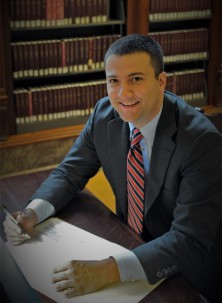I. Child Advocacy
A. School Law
Federal Court Clarifies Standards under Section 504 of the Rehabilitation Act
In a recent case, the federal appellate court whose decisions bind the federal courts in Missouri (the Eighth Circuit) reiterated and clarified standards under Section 504 of the Rehabilitation Act. Most importantly, the court defined when auxiliary aids and services are “necessary” under Section 504.
The case involved an academically qualified student with a serious hearing impairment who moved to Nebraska to attend medical school there. During the student’s first year of medical school, the school failed to provide necessary auxiliary aids and services. In his second year, the school refused to permit him to use an interpreter during clinic. He eventually filed suit against the university under both Title III of the Americans with Disabilities Act and Section 504 of the Rehabilitation Act
Section 504 of the Rehabilitation Act
Congress enacted the Rehabilitation Act as a comprehensive federal program to ensure that individuals with disabilities would not be denied the benefits of or be subjected to discrimination under any program or activity receiving federal funding. The Rehabilitation Act requires entities that receive federal funding to furnish auxiliary aids which afford handicapped persons equal opportunity to obtain the same result, to gain the same benefit, or to reach the same level of achievement with others.
Section 504 of the Rehabilitation Act requires that “an otherwise qualified handicapped individual must be provided with meaningful access to the benefit that the grantee offers.” Alexander v. Choate, 469 U.S. 287, 301 (1985). The Rehabilitation Act requires a private medical school to provide “reasonable accommodations . . . when a disabled student would otherwise be denied meaningful access to a university.” Stern v. Univ. of Osteopathic Med. & Health Sciences, 220 F.3d 906, 908 (8th Cir. 2000).
“Meaningful access” does not mean that aids and services are “required to produce the identical result or level of achievement for handicapped and non-handicapped persons;” what it means is that the aids and services “must afford handicapped persons equal opportunity to . . . gain the same benefit.” Loye v. County of Dakota, 625 F.3d 494, 499 (8th Cir. 2010). The “meaningful access” question is highly fact-intensive and depends largely on context.
The Rehabilitation Act Claim
To assert his discrimination claim under Section 504 of the Rehabilitation Act, the student had to show three “elements.” The elements of his Rehabilitation Act claim were: (1) that he was disabled and academically qualified to attend the medical school, (2) that the medical school received federal funding, and (3) that the medical school discriminated against him based on his disability.
The first two elements were not in dispute. Thus, the only issue in the case was whether or not the medical school discriminated against the plaintiff (1) by failing to provide necessary auxiliary aids and services during his first year of medical school and (2) by refusing to permit the plaintiff to use an interpreter during his second-year clinic.
“Necessary” Auxiliary Aids and Services
The Rehabilitation Act does not require institutions to provide all requested auxiliary aids and services. Rather, the law requires the responsible parties to provide “necessary” auxiliary aids and services to individuals with disabilities. Before 2013, the Eighth Circuit had not defined what “necessary” meant in this context. In this case, the court decided that Section 504 of the Rehabilitation Act requires the medical school to provide reasonable auxiliary aids and services to afford the disabled student meaningful access or an equal opportunity to gain the same benefit that his non-disabled peers gain. However, the school could submit evidence of the cost of the student’s requested auxiliary aids and services for determining whether or not providing them would impose an undue burden on the university.
The court also provided a two-step process for a university to determine whether or not it is providing “meaningful access.” First, the school must start by considering how its educational programs are used by non-disabled students. Second, the school must take reasonable steps to provide disabled students with a like experience.
Application of the Standards
Due to the procedural posture of the medical-school case, the Eighth Circuit did not determine which side won the lawsuit. The court of appeals sent the case back to the trial court to determine the winner under the announced standards. It did, however, remark that there was evidence that that the university denied the disabled student an equal opportunity to gain the same benefit from medical school that his non-disabled peers gained by refusing to provide his requested accommodations.
Contact a School Law Attorney
If you are a student with a disability and you feel that your school is refusing to provide necessary auxiliary aids and services, you should consider hiring a school law attorney. A student’s attorney can discuss the issue with the school’s attorney and work toward a mutually beneficial solution. If such a solution cannot be reached, an attorney can help you pursue your rights under Section 504 of the Rehabilitation Act.



